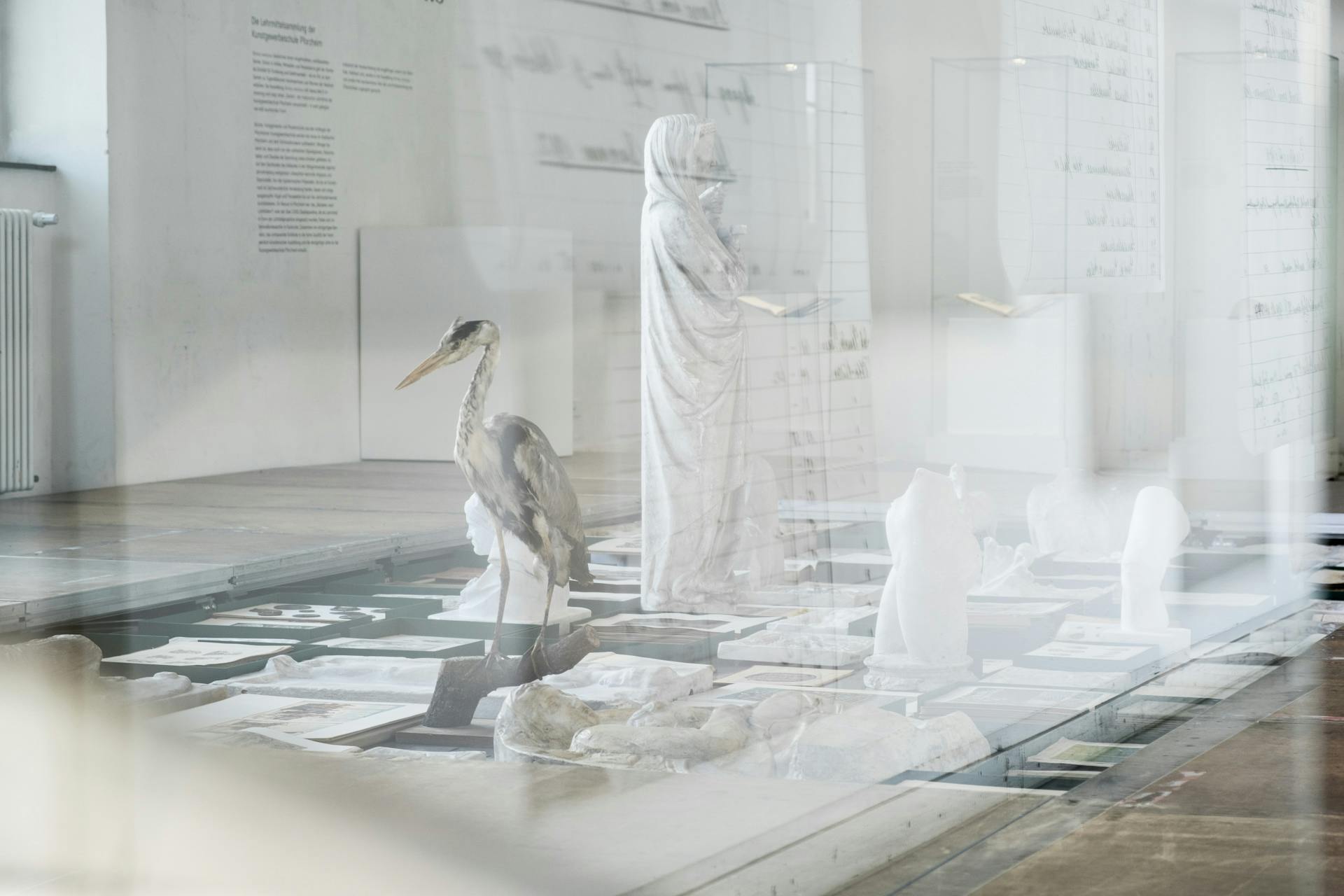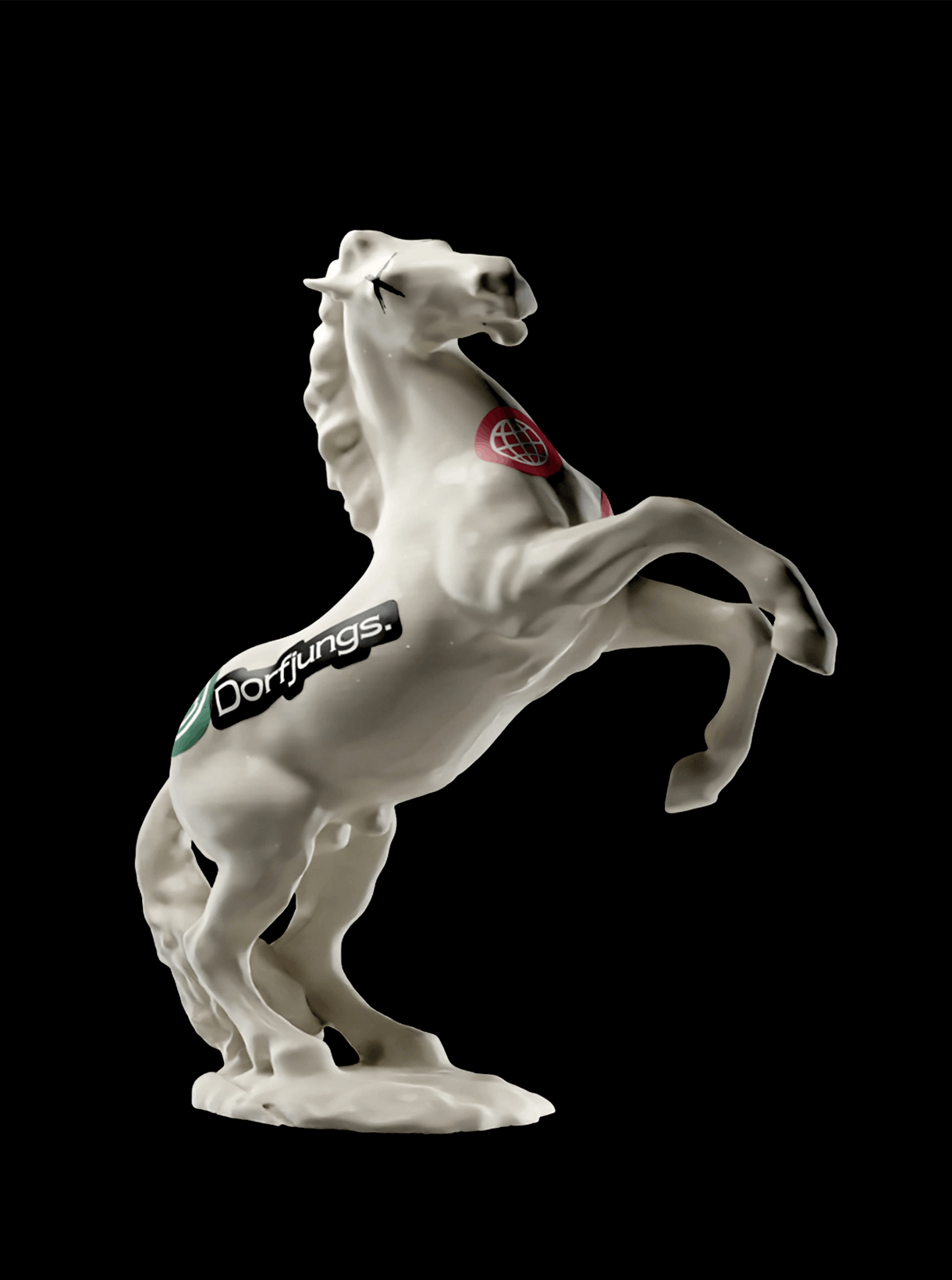The Horror genre is a mirror of sorts. It offers a unique perspective on what we, as a society, are afraid of – and there is one thing that has haunted us for decades; movie makers and audience alike. Something lurking in the shadows, something ungodly and seemingly abnormal: The societal other.
Societal Other
© 2022
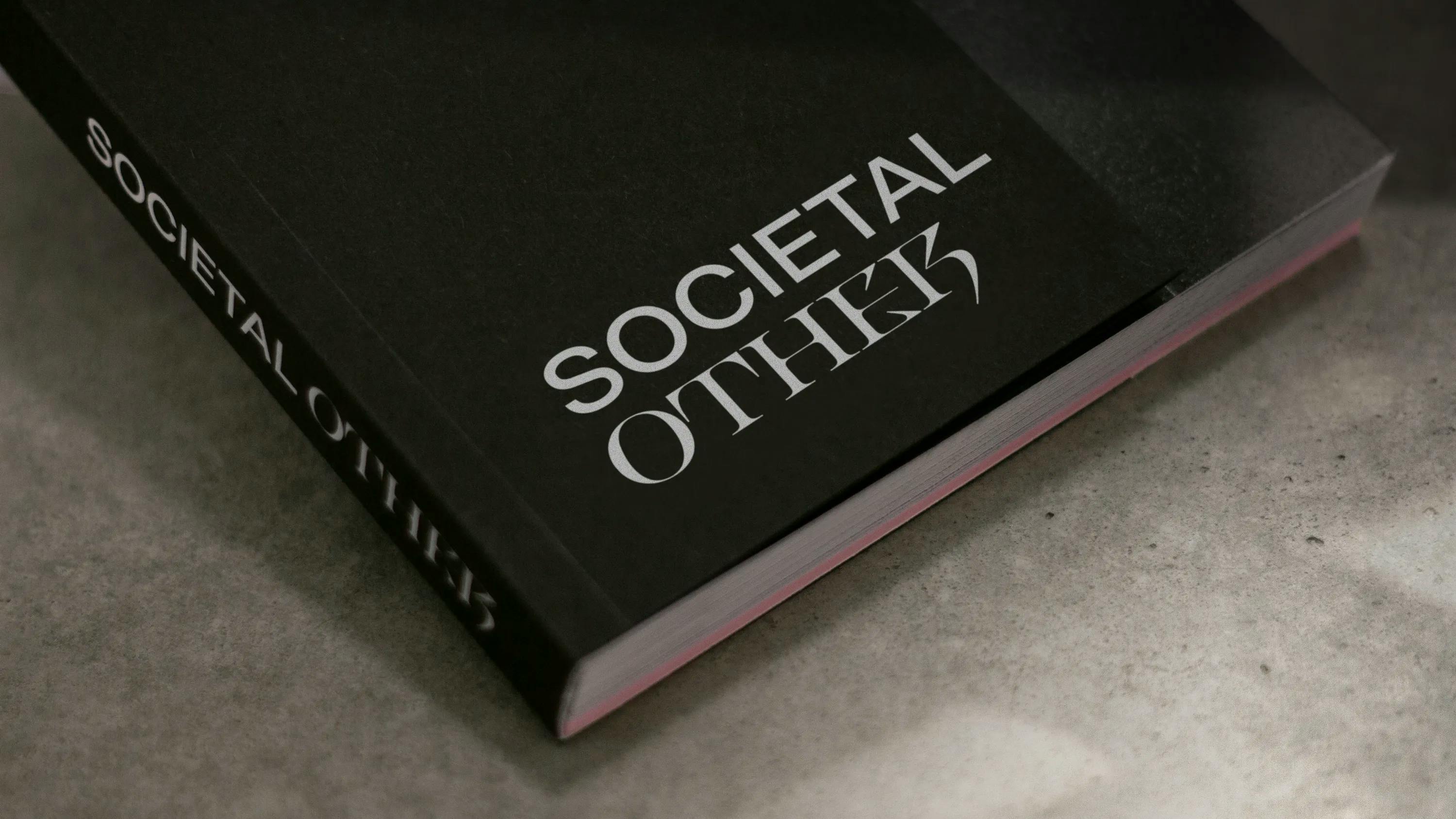
This book examines popculture artifacts and what they teach us about the depiction of queer motifs in horror cinema. Between empowerment and embarrassment, between tropes and camp, let us uncover the lgbtq+ themes in Horror.
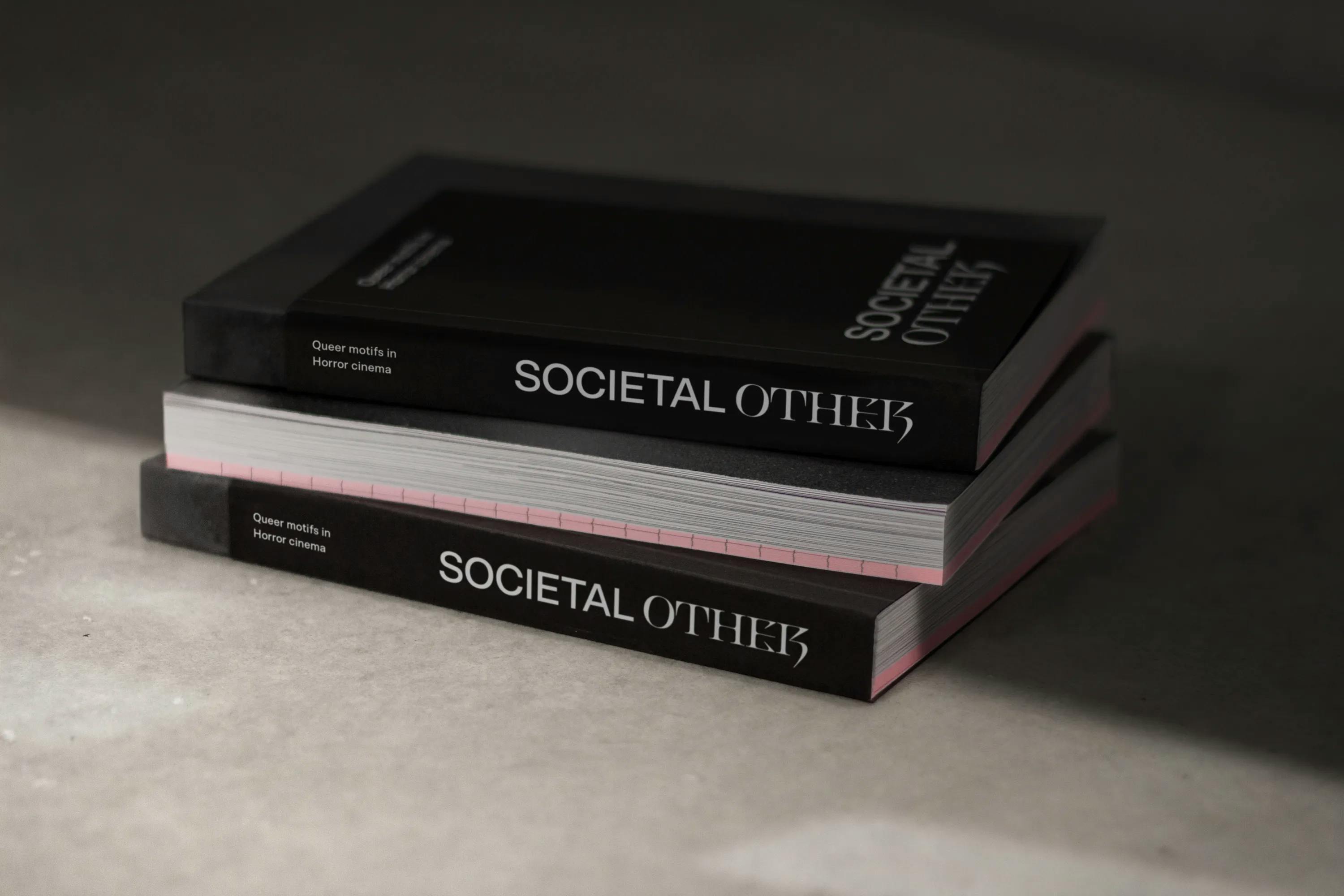
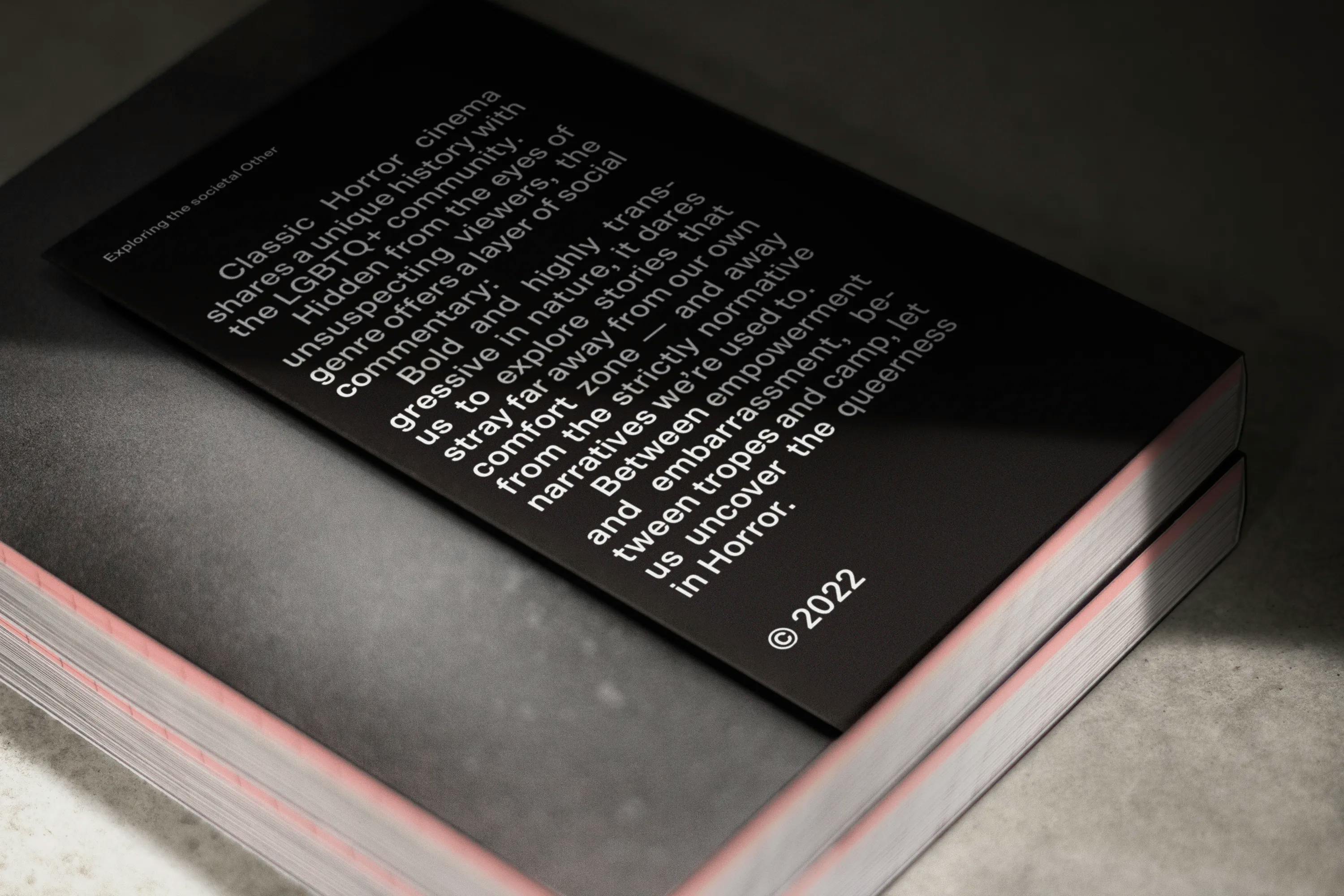
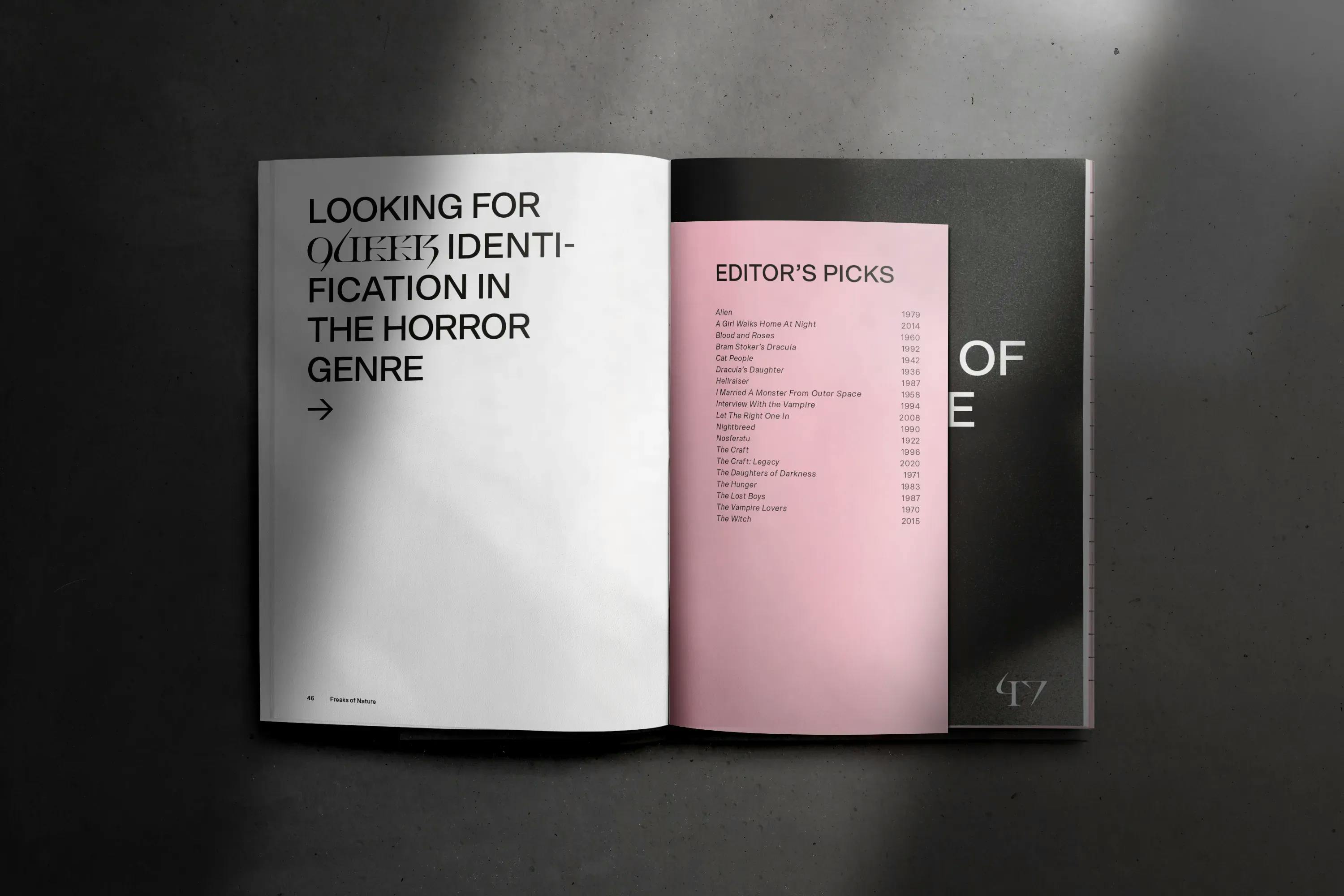
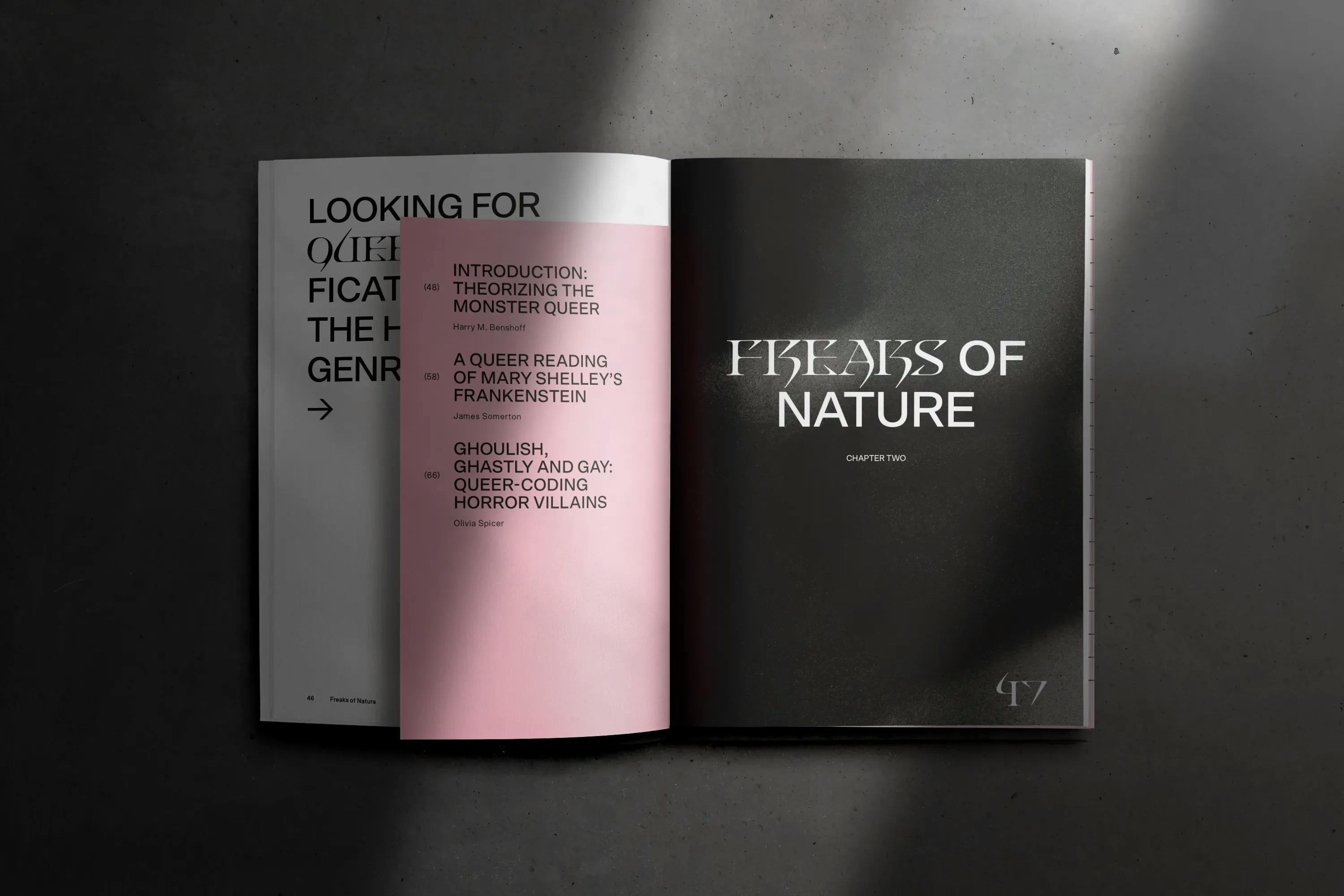
As the most transgressive of all genres, Horror has been an integral source of queer representation on the big screen for years. Hidden from the eyes of unsuspecting viewers, the genre offers a layer of social commentary. It dares us to explore stories that stray far away from our own comfort zone — and away from the strictly normative narratives we’re used to. By applying a queer interpretation of key moments in Horror cinema, we can identify the tension between societal norms and their misfit counterparts.
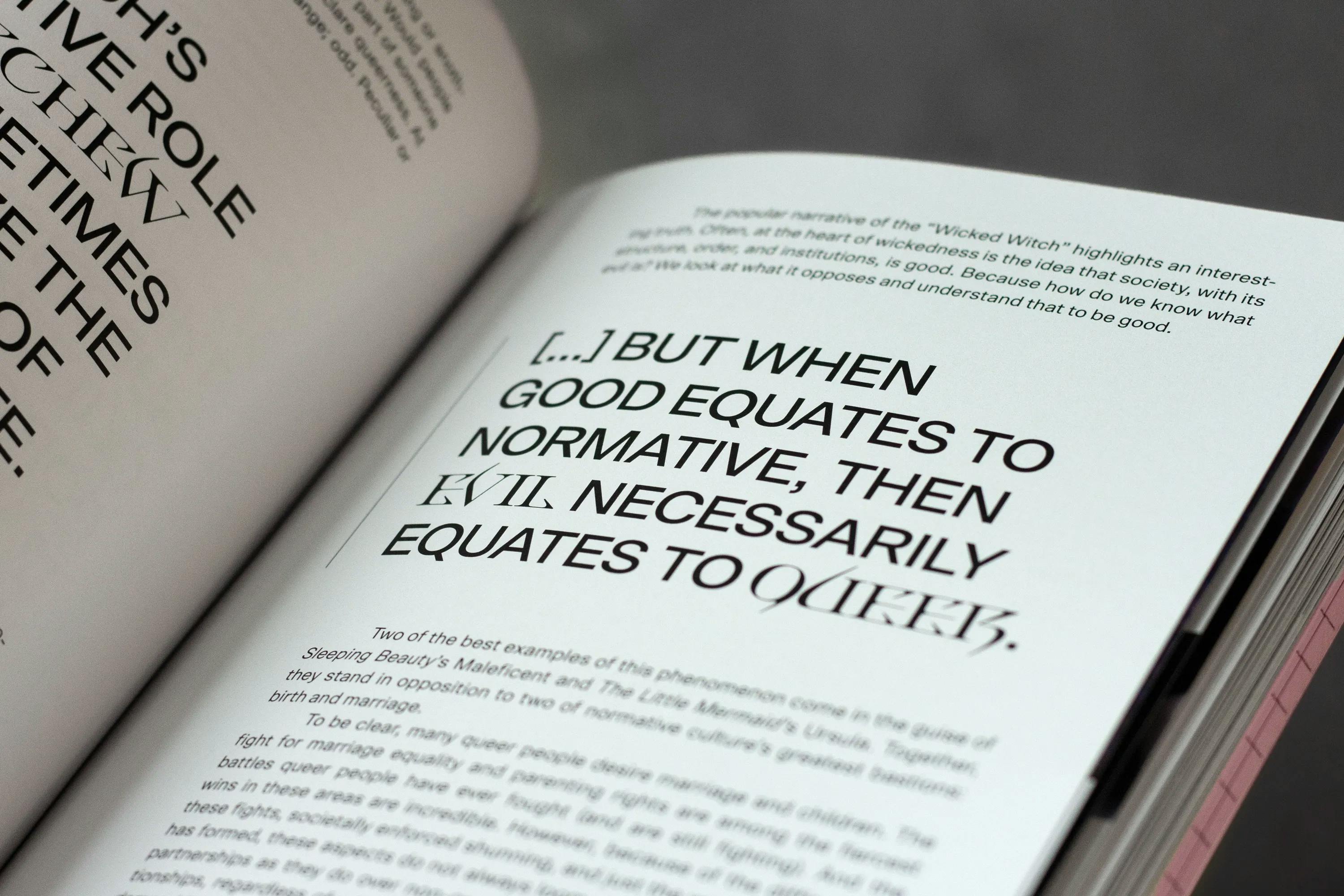
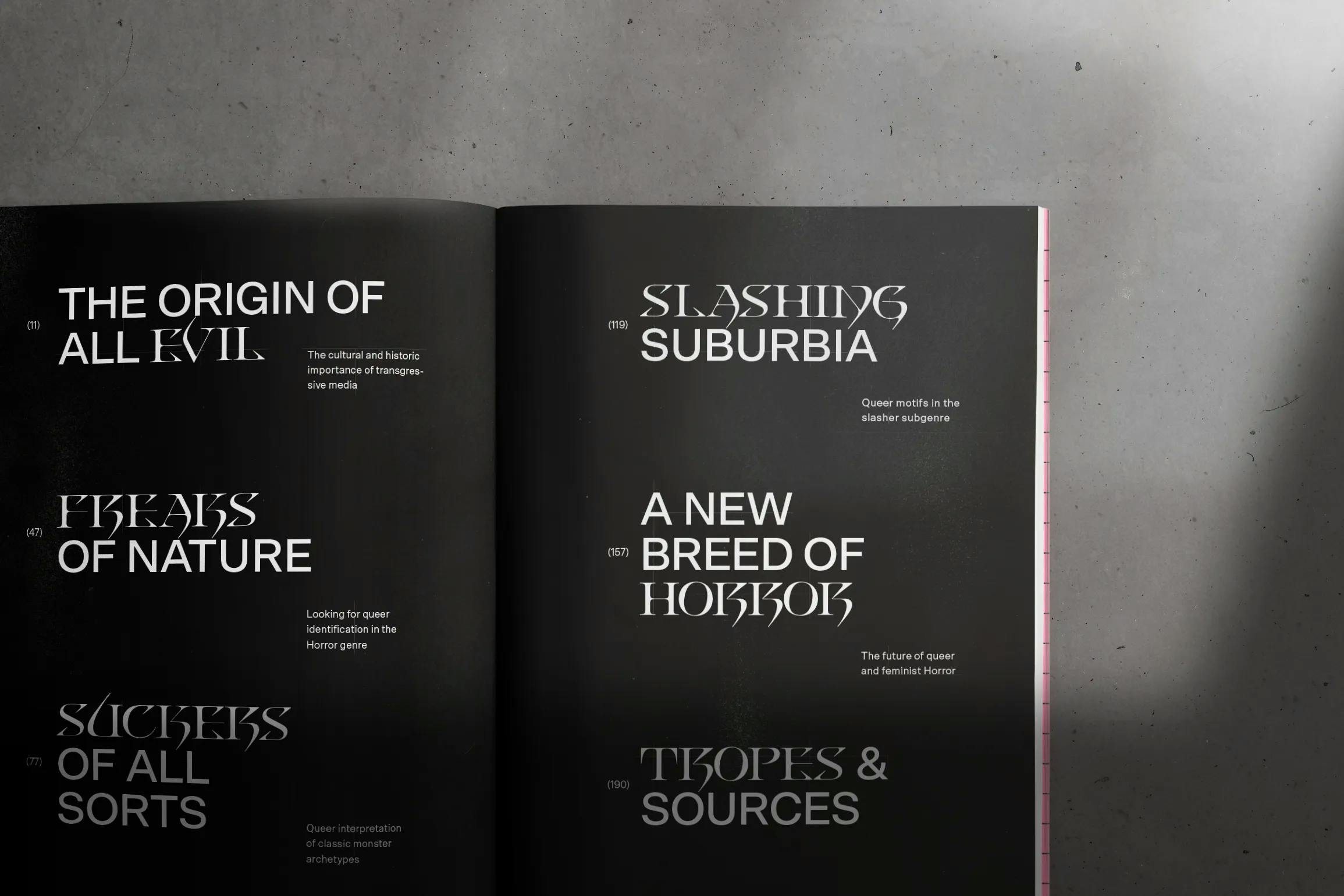
The book is devided into five chapters and a glossary of horror movie tropes that often enforce negative representation for queer people. The first chapter Origin of all Evil is an ode to the socio-political dimension of horror movies and gives an introduction to the history of queer coding. The second chapter, Freaks of Nature, establishes the connection between the horror genre and queer empowerment. In chapter three, Suckers of all Sorts, we take a closer look at queer-coded monster archetypes, e.g. vampires, witches and genderless aliens. In Slashing Suburbia, the slasher subgenre is dissected: Here we often find cruel portrayals of queer people als psychotic villains. In the final chapter, A new Breed of Horror, an optimistic outlook is given on the future of feminist and queer horror creators that take over the scene.
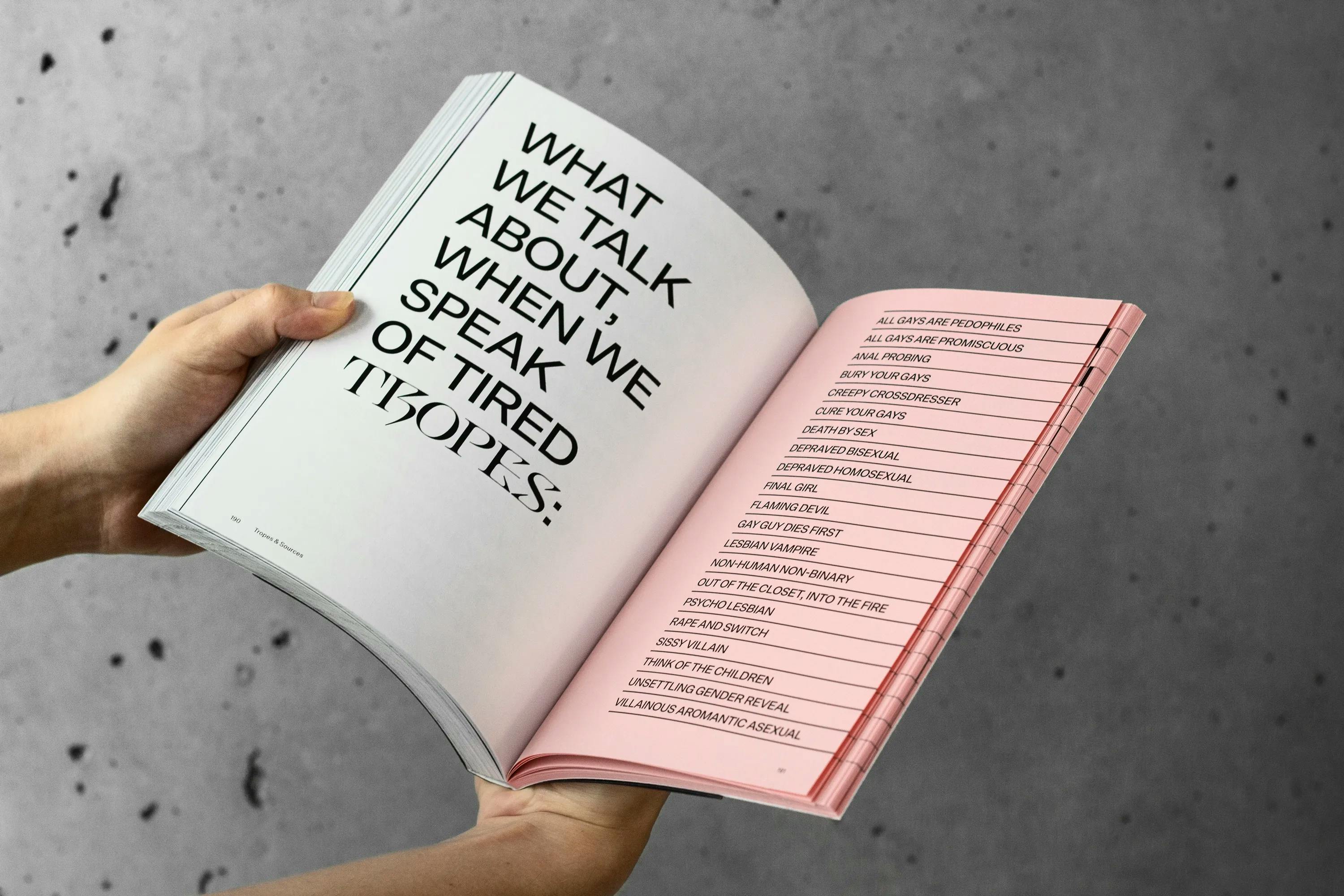
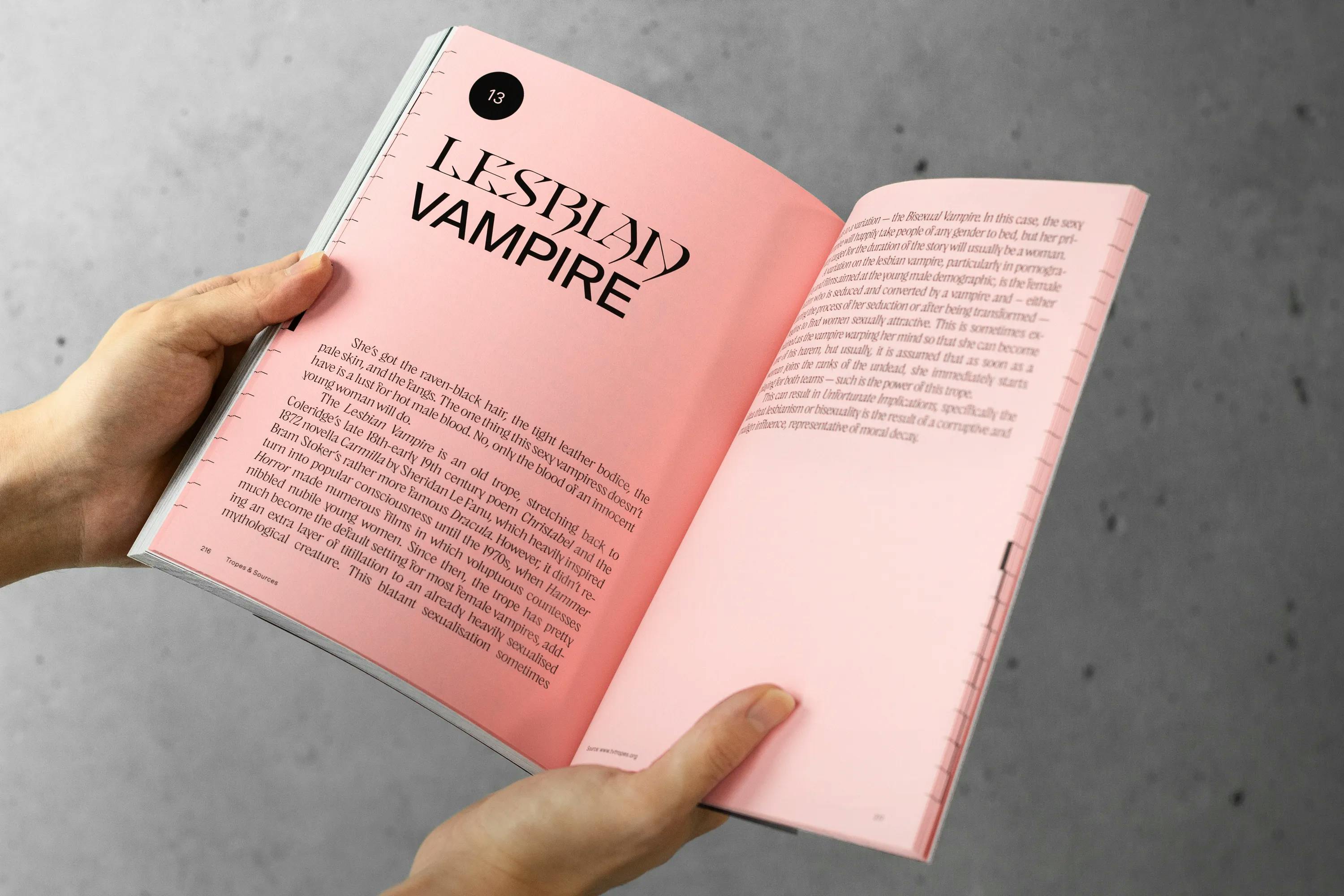
The horror genre is known for its play on tropes. As an audience, we expect certain narratives and are disappointed when our expectations are't met on screen. However, a lot of queer tropes common in television and cinema reflect badly on LGBTQ+ people. It is important to point a finger on recurring narratives that harm the LGBTQ+ community by re-enforcing clichéd portrayals of queer lives.
Prof. Michael Throm
Manuel Pollanka
Shannon Stewart
Scto Grotesk A (Shick Toikka)
Orion (Melvin Ghandour)
TT Ricks (Type Type)
© 2022 Adrian Wilhelm. Some rights reserved. I do not claim the rights to any of the used bodies of text or movie stills collected in this concept. They are strictly used as placeholders.
Contact
Let’s talk about design, work & horror movies.


